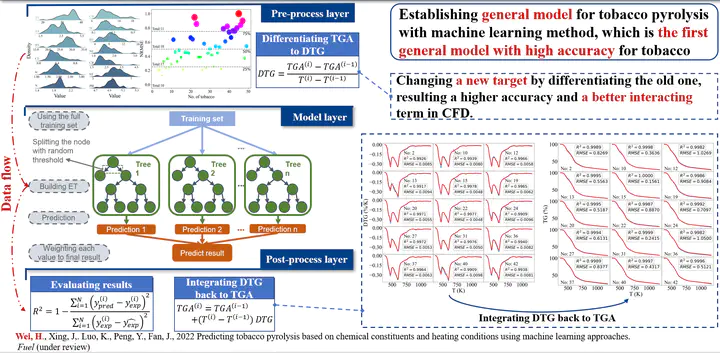Predicting tobacco pyrolysis based on chemical constituents and heating conditions using machine learning approaches
 Abstract
AbstractAbstract
Tobacco is a special type of biomass that consists of complex chemical constituents. Currently, only global kinetic models have been developed for tobacco pyrolysis, but accurate kinetics considering the effects of the complex chemical constituents and heating conditions have not been well established. To this end, a general tobacco pyrolysis model was developed based on the complex chemical constituents and heating conditions using machine learning approaches.Specifically, chemical analysis and thermogravimetric analysis (TGA) of 49 tobacco samples under a wide range of heating rates were first conducted by experiments and then used to construct a database for the model development. Subsequently, the constructed database was divided into seen and unseen datasets for the model development and evaluation. General pyrolysis models for single and multiple heating rates were developed from the seen dataset using an advanced machine learning approach, the Extremely Randomized Trees (Extra Trees, ET). The performances of models were further evaluated on the unseen dataset through comparisons with the experimental data. The results showed that after feature selection based on Pearson correlation coefficient and hyper parameters optimization, the trained models could accurately reproduce the tobacco pyrolysis behaviour on the unseen data with